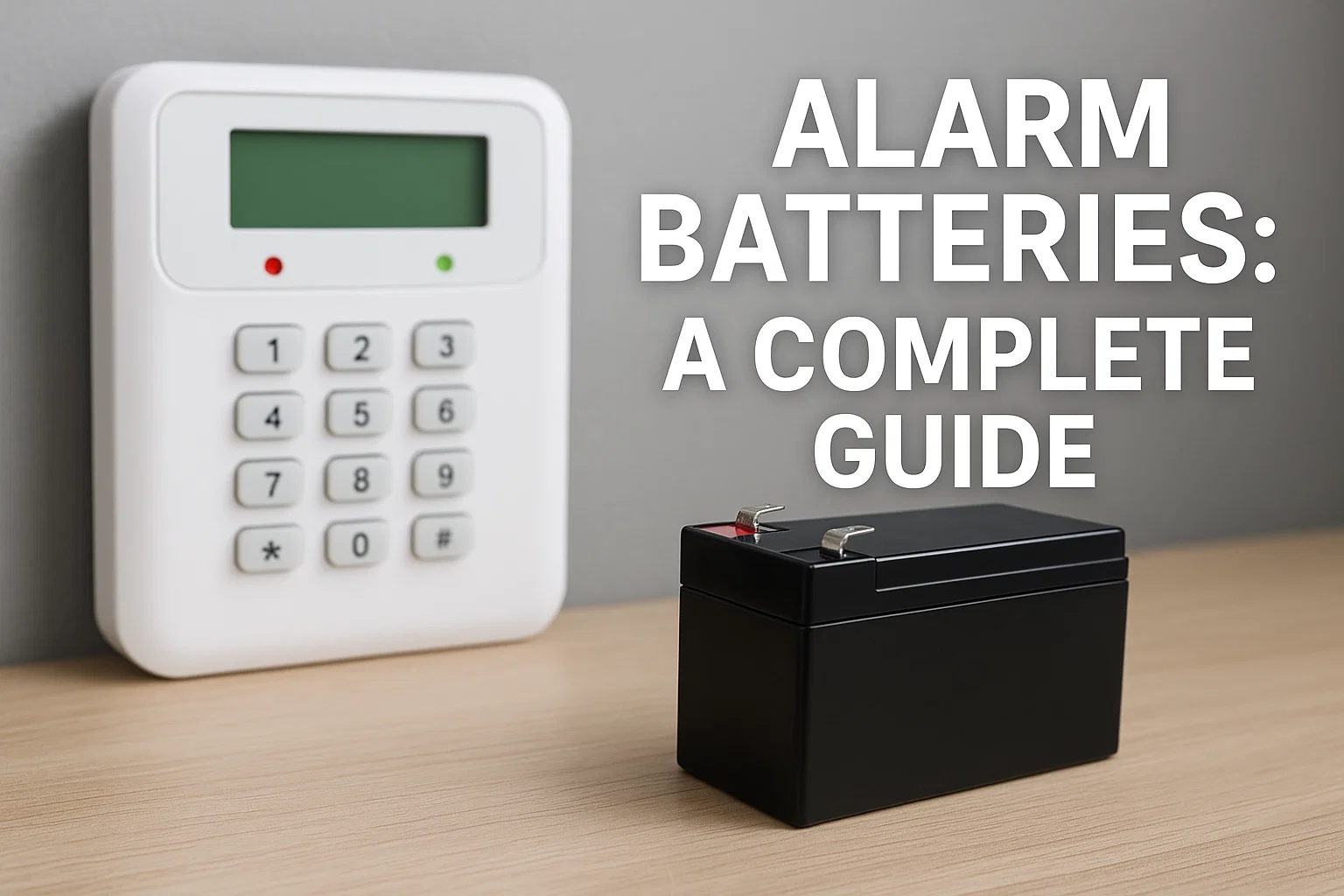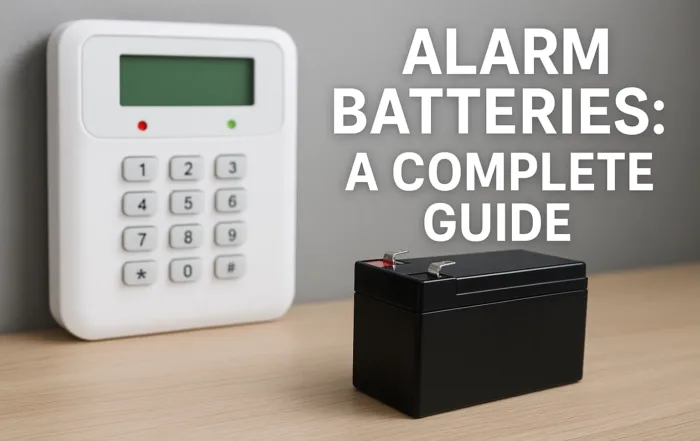
Alarm batteries are the unsung heroes of reliable security and fire safety systems, providing crucial backup power to keep your home or business protected during power interruptions or communication failures. Whether supporting fire alarm systems, security panels, or wireless sensors, understanding the specifics of alarm battery types, sizes, voltages, and maintenance is essential for ensuring optimal performance. In this comprehensive guide, you’ll learn everything necessary to maintain dependable alarm systems, safeguarding your property around the clock.
Table of Contents
- Importance of Alarm Batteries
- Types of Alarm Batteries
- Fire Alarm Batteries
- Security Alarm Panel Batteries
- Batteries in Wireless Security Sensors
- Alarm Battery Maintenance Tips
- Common Alarm Battery FAQs
Main Takeaways:
- Alarm batteries provide critical backup power during outages, ensuring continuous protection.
- Fire alarm systems typically use 12V lead-acid batteries (7Ah–18Ah), requiring regular testing and replacements.
- Security alarm panels commonly utilize 12V lead-acid batteries (4Ah–9Ah) for reliable backup.
- Wireless sensors primarily rely on lithium batteries (CR123, CR2032, AA) for extended durability.
- Routine battery maintenance, timely replacements, and proper testing are essential for system reliability and compliance.
Importance of Alarm Batteries
Alarm batteries play a critical role in ensuring your alarm systems remain operational during power outages or communication disruptions. They provide essential backup power, allowing fire and security alarms to continue protecting your home or business even in emergencies.
How Alarm Batteries Keep You Safe
During power interruptions, alarm batteries ensure uninterrupted protection, preventing vulnerabilities that could otherwise expose your property to hazards or intrusions. Properly maintained batteries significantly enhance your security system’s reliability.
Types of Alarm Batteries
Lead-Acid Batteries
Lead-acid batteries are commonly used in alarm panels for backup power. Typically, these batteries are 12V, available in sizes such as 4Ah, 7Ah, and 12Ah, depending on system requirements.
Lithium Batteries
Lithium batteries are prevalent in wireless sensors due to their longevity and reliability. Standard lithium battery types include CR123, CR2032, and AA lithium cells.
Fire Alarm Batteries
Fire alarms depend heavily on backup batteries to operate effectively during emergencies, ensuring critical systems remain online for notification and evacuation.
Common Fire Alarm Battery Specifications
- Typically 12V, sealed lead-acid type
- Common capacities: 7Ah to 18Ah
- Usually replaced every 3-5 years depending on conditions and usage
Testing and Replacement Protocols
Regular testing includes measuring voltage and capacity checks to verify batteries meet NFPA standards for fire safety systems. Professionals recommend scheduled replacements to maintain compliance and reliability.
Security Alarm Panel Batteries
Security alarm panels commonly use lead-acid batteries to provide backup power, maintaining full functionality during electrical outages or other interruptions.
Typical Specifications for Security Panel Batteries
- Voltage: Usually 12V
- Common capacities: 4Ah, 7Ah, 9Ah
- Regularly replaced every 3-5 years for optimal performance
Signs Your Panel Battery Needs Replacement
- System displays “Low Battery” warning
- Frequent alarms or panel malfunctions
- Batteries older than five years
Batteries in Wireless Security Sensors
Wireless sensors require compact, reliable batteries to ensure consistent communication with the alarm panel. Lithium batteries are preferred for their durability and stability.
Common Types and Voltages for Wireless Sensors
- CR123: 3V, commonly used in motion detectors
- CR2032: 3V coin cell, popular in smaller contact sensors
- AA Lithium: 1.5V, used in various door/window sensors
Battery Life and Maintenance for Wireless Sensors
Wireless sensor batteries typically last 3-5 years under normal conditions. Regular checks and timely replacements ensure uninterrupted protection and accurate sensor performance.
Alarm Battery Maintenance Tips
- Conduct monthly voltage tests to ensure optimal battery performance.
- Replace batteries proactively according to manufacturer recommendations.
- Keep batteries in a controlled environment away from extreme temperatures and moisture.
- Use quality replacement batteries from reputable brands.
Common Alarm Battery FAQs
How long does an alarm battery typically last?
Alarm panel batteries usually last between 3-5 years. Wireless sensor batteries commonly last 3-5 years depending on usage and environmental factors.
Can I replace alarm batteries myself?
Yes, replacing batteries is straightforward for many alarm systems. However, fire alarm systems may require professional service to ensure compliance with local regulations.
What happens if I don’t replace my alarm batteries?
Failure to replace alarm batteries can lead to system malfunctions, reduced protection during power outages, and possible non-compliance with safety standards.
What voltage should my alarm battery have?
Typically, alarm panels require 12V batteries, while wireless sensors use batteries ranging from 1.5V to 3V depending on the device.
Ensure Continuous Security with Reliable Alarm Batteries
Don’t risk your safety by neglecting your alarm system batteries. Contact Central Signal today to get a free estimate for professional battery testing, replacement, and maintenance services. Keep your home and business protected with reliable, high-quality alarm batteries.


